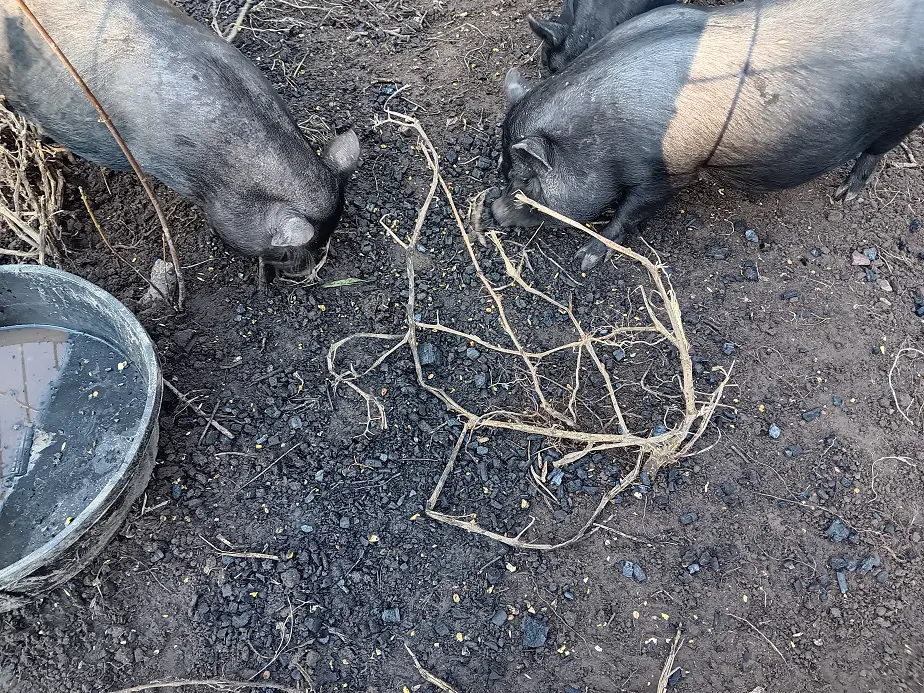We raise A lot of pigs here and do so without any commercial feed. Biochar is one of our secrets to good animal growth.
How Does Biochar Benefit Pigs?
Adding biochar to a pig’s diet shows increased growth, improved feed conversion ratio, and improved health of the animal. Perhaps the most useful benefits are the reduction of intestinal parasites and significantly less E.coli in manure. Biochar also increases manure fertility while reducing the odor.
That’s a lot to claim, but it’s all true. Let’s talk about it.
Biochar Improves Pig Health
Biochar is added to a swine diet to improve the overall function of the animal. Generally, it’s mixed in with the feed and pigs eat it. It causes significant improvement in pig health, vitality, and immune function. That’s my favorite benefit.
I recently used biochar to treat a pig that had Swine Wasting Disease. It’s supposed to be untreatable with standard medicine. I powdered up some biochar and put it in her water She was over it in three days. After that, I’ll always have biochar on hand and the animals get it regularly.
Biochar has several ways of fixing problems in the stomach and gut, even small problems you didn’t know existed. It can rid the gut of toxins from accidental ingestion of moldy feed, toxins produced from bad bacteria, and even harmful substances that are already in the bloodstream.
Biochar improves digestion and reduces gas and diarrhea, thereby increasing the digestion and absorption rate of feed to a noticeable level. It’s also useful as a dietary supplement of calcium, zinc, and chloride.
Biochar removes pesticides and herbicides from feed. Those compounds commonly have a negative effect on the gut flora, particularly Glyphosate, aka, Roundup. By removing those chemicals you improve digestion. It also improves gut flora which directly affects and improves the immune system.
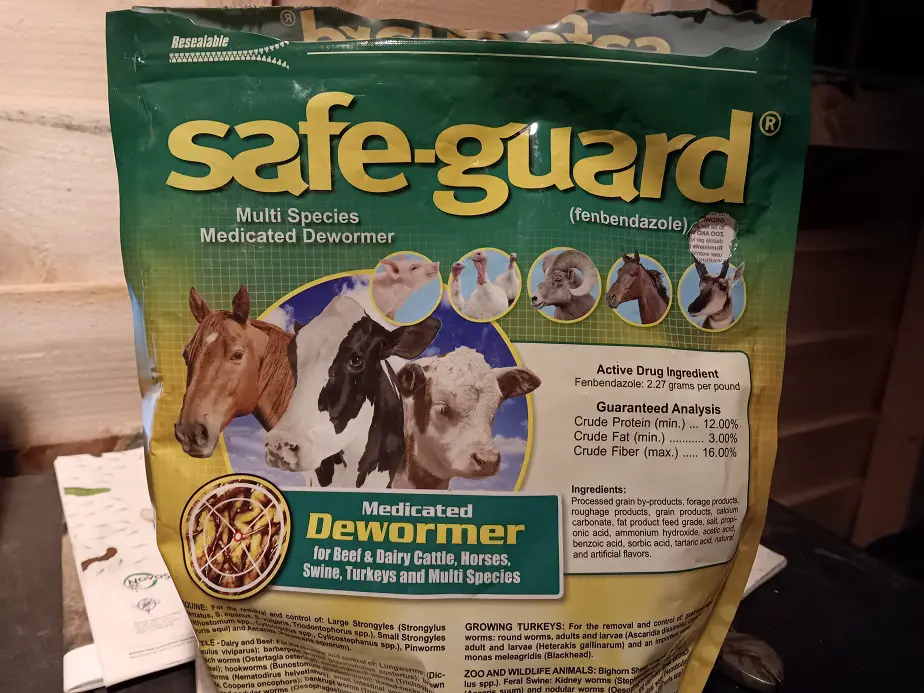
One thing you need for pigs, no matter your raising system, is a parasitic worm treatment. The best swine dewormer is Fenbendazole. It’s known by the brand name Safeguard. Safeguard is available as a medicated corn/alfalfa pellet. It’s the only way I can worm my pigs since they won’t stand still for an injection of Ivermectin. It’s easy and cheap.
- There is a stronger pellet for swine only. Here it is on Amazon
- There is a weaker pellet for general barnyard livestock, including swine. Here it is on Amazon.
I use the multi-species version because it’s what’s available in my local store and I can use it for my chickens too. It’s the most effective swine wormer and the easiest to administer. I use it on all weaned piglets and adults twice a year. Don’t go without it.
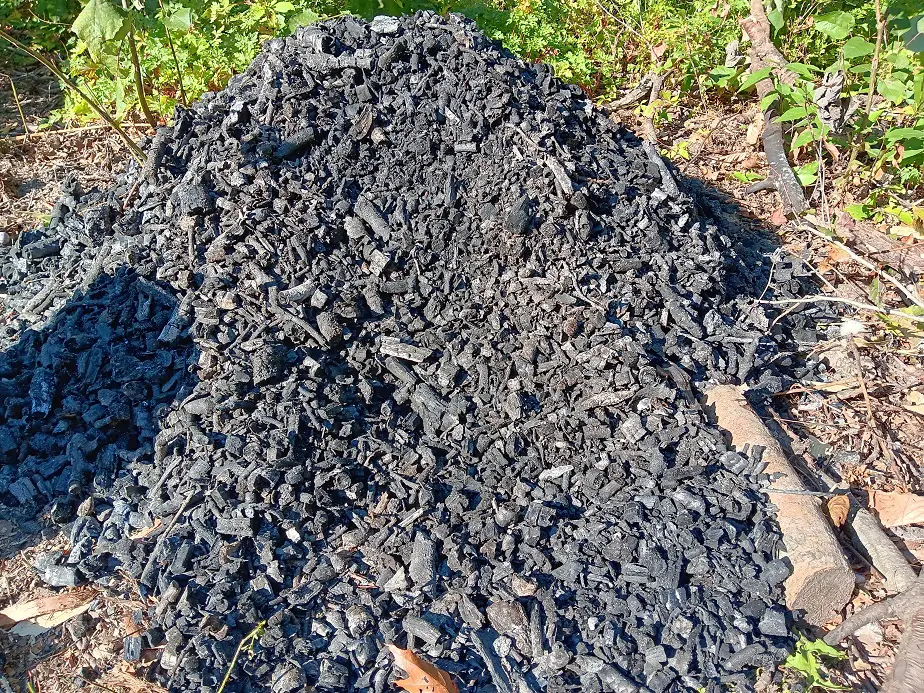
Biochar Reduces Manure Odor
Biochar reduced odor from manure, especially that of boars, by absorbing and trapping outgassing and by absorbing skatole, a putrid pheromone excreted by boars. If fed to animals, or layered in manure piles, it works to absorb and limit the loss of these compounds responsible for foul smells nearby.
Manure slurry can be covered by a small layer of biochar, which floats on the top but won’t blow off in the wind as it soaks up moisture. A cap of biochar works to prevent nutrient loss and reduce noxious outgassing in a slurry lagoon.
Biochar Reduces Intestinal Parasites
Biochar has been shown to reduce intestinal parasites and worms to a very high degree when used over several months. There hasn’t been a lot of clear research on this, but it the effect has been noted in several reports and by farmers.
Folks who butcher their own pastured animals have commented on the fact that when they added biochar to the feed mix, no worms were noticed when butchering. Before adding biochar, they often had worms.
A few studies have noted biochar having a beneficial effect on instances of tapeworms and coccidiosis in livestock. More clear research would be nice, but it seems to be a benefit for sure. Although we don’t really know why.
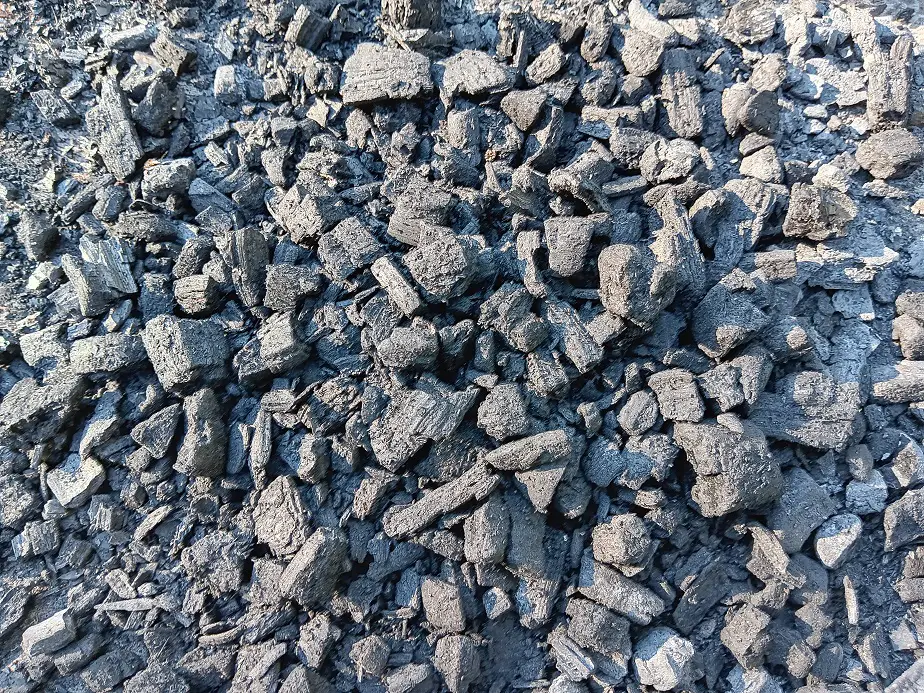
Biochar Reduced E.coli in the Gut
There are many published studies showing that biochar has a way of both catching and killing E. coli. Biochar made at temperatures over 1,000 degrees Fahrenheit has biocidal and antimicrobial properties that seem extra effective against E. coli. Biochar is used to reduce E. coli in manure, soil, and in water.
Biochar Increases the value of manure
By preventing manure from outgassing and leaching nutrients, biochar improves the fertility and increases the value of manure. I have seen up to 33 percent more fertility in aged manure when amended with small amounts (1-3 percent) biochar.
Biochar can be added directly to manure or fed to animals for its full effect of fertility preservation. It does the same thing with compost too, regularly increasing the fertility of the finished product by 20 percent or more.
Manure amended with biochar will improve soil aeration, water holding, and nutrient holding ability far better than manure alone.
Charged vs Uncharged (raw) Biochar
Biochar can be charged or uncharged, also called raw. Charged biochar is inoculated with other compounds or minerals, or with beneficial microorganisms like Lactobaccilious. I have used a charged biochar to boost my pig’s gut health when inoculated with probiotics and beneficial bacteria.
Uncharged or raw biochar is used for its absorption capabilities for removing harmful or toxic compounds, mainly from within the gut of an animal. Generally, this is the type sold for livestock use.
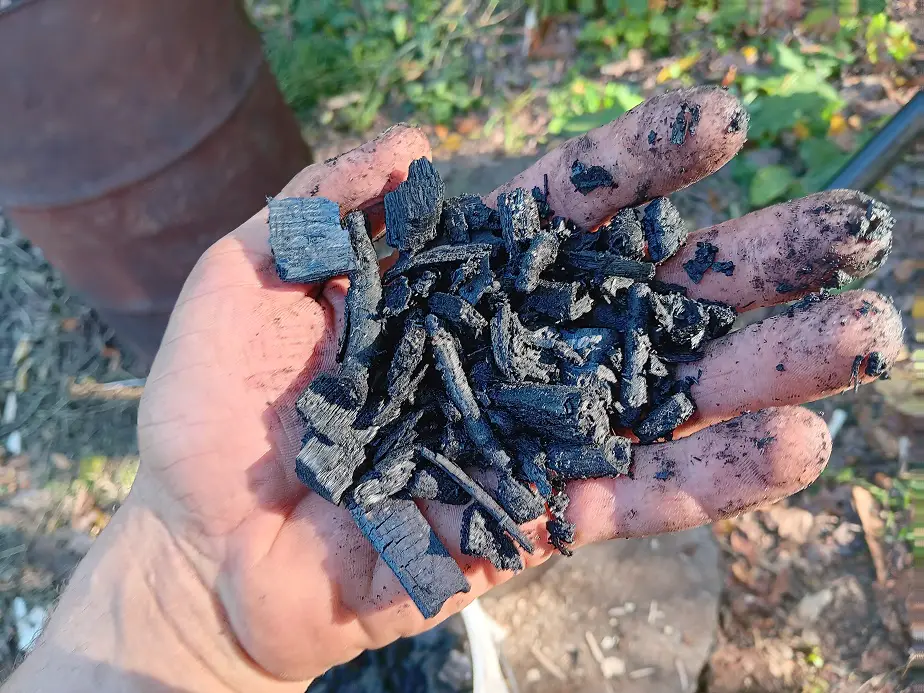
How to Mix it With Feed
Biochar can be added to a mix pre-pelleting. It can also be ground and added to a mash (finely ground feed). Sometimes pigs will eat plain biochar if you toss it in their pen, but not always. You could also add ground biochar to feed and stick it with a light coating of water or molasses.
How Much to Use
Biochar is commonly included in feed at a rate of 1 to 3 percent by weight. Levels exceeding 4 percent have shown negative effects by decreasing the feed value too much. I like to add 2 to 4 percent biochar to my pig feed on a regular basis.
Sources:
- The Use of Biochar in Animal Feeding
- Biochar As a Bioactive Feed Ingredient in Pig Diet
- Biochar Mitigates Manure Related Odors and Emissions on Pig Farms
Related Articles:

